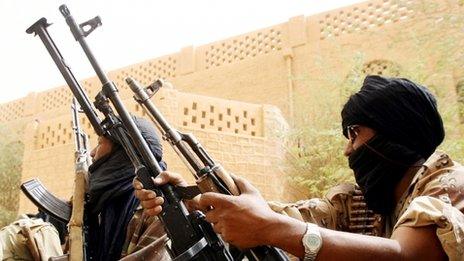Mali: Timbuktu heritage may be threatened, Unesco says
- Published
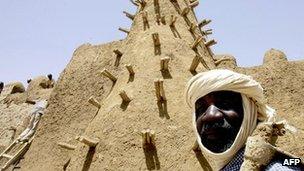
Timbuktu's mud and wood architecture is unique
The fighting in northern Mali could damage the World Heritage Site of Timbuktu, the UN's cultural agency Unesco has warned.
Timbuktu's "outstanding architectural wonders" must be safeguarded, it said.
Separatist Tuareg rebels joined forces with Islamist fighters to take the town on Sunday, and residents have told the BBC that Islamic law is being imposed.
The African Union has joined West African nations in imposing sanctions on Mali after a recent coup.
Meanwhile, representatives from the new military leadership are in Nigeria for talks with the authorities.
The military junta overthrew Mali's government nearly two weeks ago, saying the campaign against the recent Tuareg rebellion had been poorly run.
Junta head Capt Amadou Sanogo has said the army is not leaving power, but has promised to consult local political forces to set up a transition body "with the aim of organising peaceful, free, open and democratic elections in which we will not take part".
'Bars ransacked'
Correspondents say long lines have formed at petrol stations in the capital, Bamako, in response to sanctions.
Timbuktu mayor Halle Cisse: "We don't know who's in charge"
A farmer, who was filling up 15 jerry cans with diesel, told the BBC that he was worried about not being able to irrigate his crops with a generator once fuel reserves run out.
Landlocked Mali has to import all its fuel - and reporters say the country will struggle to survive an economic blockade.
But the Tuareg rebels have taken advantage of the political situation and made rapid advances in the past few days - and now control of a third of the West African country, including the key northern towns of Gao, Kidal and Timbuktu.
The rebels are divided into two groups - the National Movement for the Liberation of Azawad (MNLA), which wants independence for the northern Tuareg homelands, while Ansar Dine, which is linked to the North African branch of al-Qaeda, wants to remain part of Mali but impose Sharia.
Residents in Gao and Kidal told the BBC that Islamist fighters have ransacked bars serving alcohol and banned Western music on local airwaves.
In Timbuktu, people told the BBC that Ansar Dine members are going from door-to-door telling occupants that they now have to live by the principles of Islamic law.
The BBC's Alou Diawara in the capital, Bamako, says some civilians are fleeing the central town of Mopti, fearing a rebel advance further south.
According to the UN refugee agency, since January the violence has uprooted more than 200,000 people, including around 100,000 who have fled the country.
Tourist attraction
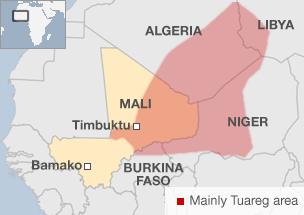
Timbuktu - on the edge of the Sahara desert - is littered with impressive architecture, using mud and wood in a unique style.
Structures include the great mosques of Djingareyber, Sankore and Sidi Yahia and 16 cemeteries.
"They are essential to the preservation of the identity of the people of Mali and of our universal heritage," Unesco head Irina Bokova said, calling on all parties to fulfil international obligations to safeguard heritage in times of war.
Once an important centre of Islamic study, Timbuktu is home to about 700,000 ancient manuscripts, held in approximately 60 private libraries.
"At its zenith in the middle of the 15th Century Timbuktu was known all over the world as a repository for all sorts of knowledge, including Arabic Islamic writing, science, maths and history," Lydia Syson, an expert on Mali, told the BBC.
Today, Timbuktu is poor and parts of it are sinking under the encroaching desert sands.
Nevertheless, in recent years a lot of money has been invested in trying to preserve Timbuktu's manuscripts, some of which have already been destroyed.
Many collections have been digitised and local scholars trained in how to interpret the literary treasures, most of which are family collections that have been handed down from generation to generation.
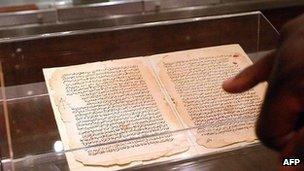
Ancient family manuscripts have been handed down from generation to generation
The rebel takeover could disrupt these efforts and prevent access to the manuscripts.
"What is so important about Timbuktu's literary patrimony is that it is a challenge to Western ideas that Africa is a land of song and dance and oral tradition," Ms Syson said.
"It reveals a continent with an immensely rich literary and scientific heritage," she said.
The UN Security Council is due to hold an emergency meeting on the crisis in Mali later on Tuesday.
The coup and Tuareg rebellion have exacerbated a humanitarian crisis in Mali and some neighbouring countries, with aid agencies warning that 13 million people need food aid following a drought in the region.
- Published1 April 2012
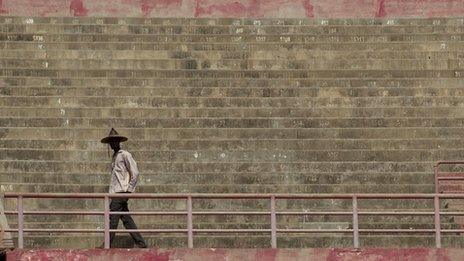
- Published12 March 2013
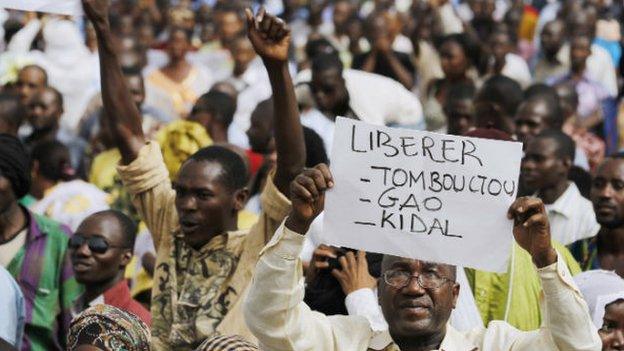
- Published22 March 2012
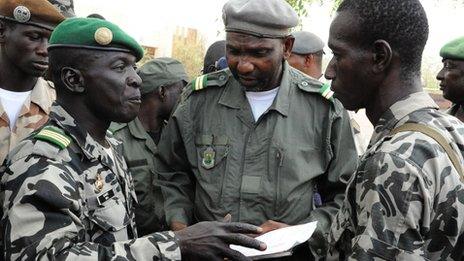
- Published28 July 2023
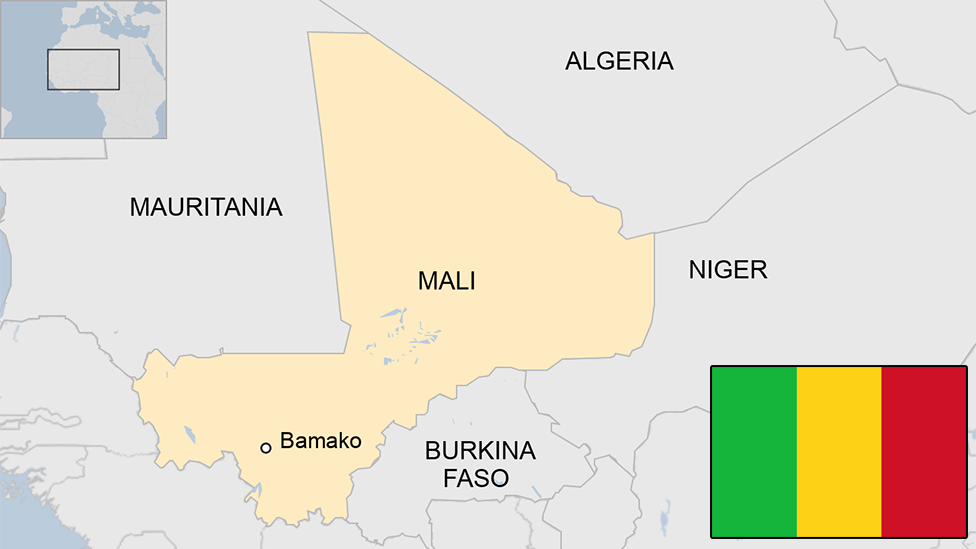
- Published29 February 2012
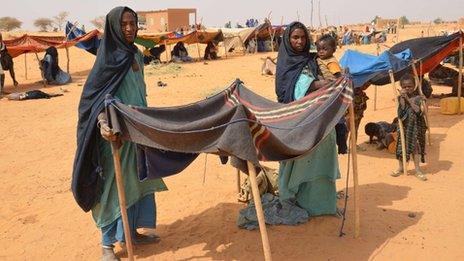
- Published31 March 2012
